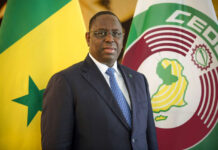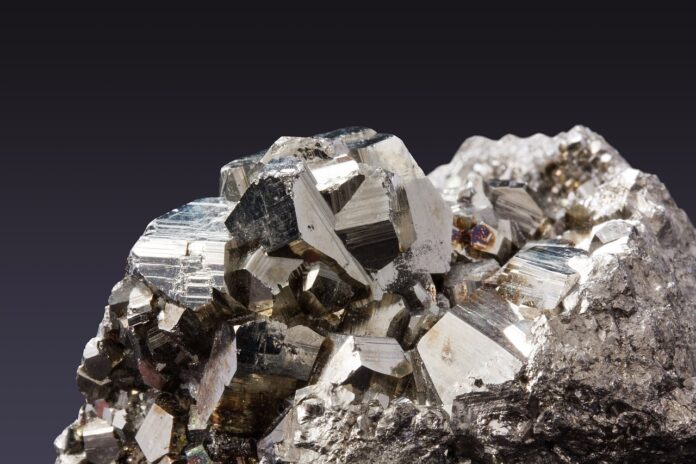Introduction
Africa stands at the epicenter of the global mineral supply chain. The continent’s vast reserves of critical minerals are not only essential for the functioning of modern economies but are also becoming increasingly indispensable as the world accelerates its transition to renewable energy, advanced technology, and sustainable industrialization. Without Africa’s minerals, the rest of the world would face significant challenges in maintaining current standards of living, technological advancement, and economic growth.
Africa’s Mineral Wealth: The Foundation of Global Industry
Africa is home to approximately 30% of the world’s known mineral reserves, including a significant share of the critical minerals required for modern technologies and the green energy transition[8][16][14]. These resources include:
– **Cobalt**: Over 70% of global production comes from the Democratic Republic of Congo (DRC), which also holds half of the world’s proven reserves[12][14][16].
– **Manganese**: South Africa, Gabon, and Ghana collectively contribute over 60% of global production[12][16].
– **Platinum Group Metals (PGMs)**: South Africa alone holds about 90% of global reserves[16][11].
– **Graphite**: Mozambique is the world’s third-largest producer[16].
– **Bauxite**: Guinea possesses the world’s largest reserves[16].
– **Lithium**: Zimbabwe ranks among the top five globally in lithium deposits[12][16].
– **Rare Earth Elements (REEs)**: Abundant in Southern and Eastern Africa, crucial for electronics and renewable energy technologies[8][7].
These minerals are the backbone of industries ranging from automotive and electronics to aerospace, defense, and renewable energy systems[3][9][15].
Critical Minerals and the Global Energy Transition
The urgency of the global shift toward low-carbon and renewable energy technologies has dramatically increased the demand for Africa’s minerals. Key components of solar panels, wind turbines, electric vehicle (EV) batteries, and energy storage systems rely heavily on minerals such as cobalt, lithium, nickel, manganese, and rare earth elements—all of which are abundantly found in Africa[1][5][4][15].
According to the International Energy Agency (IEA), production of minerals like lithium, graphite, and cobalt must increase by nearly 500% by 2050 to meet global climate goals—an increase that cannot be achieved without Africa’s resources[16]. For example:
– **Cobalt** is essential for lithium-ion batteries powering EVs and smartphones. The DRC’s dominance in cobalt mining makes it irreplaceable in the global battery supply chain[14][5][12].
– **Platinum group metals** are critical for hydrogen fuel cells and catalytic converters, with South Africa as the primary supplier[11][16].
– **Manganese and graphite** are key for battery cathodes and anodes, with Africa holding significant reserves and production capacity[5][16].
Technological and Industrial Dependence
Africa’s minerals are not just vital for energy but underpin the entire technological ecosystem:
– **Semiconductors and Electronics**: Gallium, germanium, and silicon—found in Africa—are essential for semiconductor manufacturing, which powers everything from computers to artificial intelligence systems[8].
– **Aerospace and Defense**: Titanium, beryllium, and rare earths are crucial for advanced military and aerospace applications[8][9].
– **Steel and Infrastructure**: Iron ore, chromium, and vanadium from Africa are fundamental for steel production, which supports global infrastructure and construction[4][11].
Without a steady supply of these minerals, global industries would face severe bottlenecks, rising costs, and potential technological stagnation.
The Geopolitical Stakes
The strategic importance of Africa’s minerals has elevated the continent’s role in global geopolitics. As the US-China rivalry intensifies, both powers are actively seeking to secure access to Africa’s mineral wealth to ensure their own technological and economic security[9][7][13]. China currently dominates global mineral processing, refining more than 60% of the world’s lithium, 85% of its rare earth elements, and 95% of its manganese—much of it sourced from Africa[9][7].
This concentration of supply and processing power has made mineral security a top priority for the US, EU, and other industrialized nations. Disruptions in African supply chains—due to conflict, governance issues, or strategic competition—could reverberate globally, impacting everything from EV production to renewable energy deployment and digital infrastructure[7][8][9].
Economic Impact and Opportunities
For Africa, mineral extraction is a cornerstone of economic activity, accounting for a significant share of GDP, exports, and employment in many countries[15][11]. However, the continent has historically captured only a fraction of the value generated from its mineral wealth, exporting raw materials rather than processed goods[1][10][15].
Efforts are now underway to change this dynamic. By investing in local processing, manufacturing, and value addition, African nations aim to capture more of the mineral value chain, create jobs, and foster sustainable development[1][10][5]. For example:
– **Battery Manufacturing**: Africa’s cost advantages in refining lithium, nickel, and copper position it as a competitive hub for global battery production, a market projected to be worth $1.4 trillion annually by 2030[5].
– **Industrialization**: Developing mineral-based industries could boost intra-African trade, diversify economies, and reduce vulnerability to commodity price shocks[10][1].
– **Job Creation**: Expanding mineral processing and manufacturing could generate hundreds of thousands of skilled jobs, supporting broader economic transformation[5][15].
The Risks of Disruption
The world’s dependence on African minerals also exposes global supply chains to significant risks:
– **Supply Chain Vulnerability**: Political instability, conflict, and governance challenges in mineral-rich African countries can disrupt global supplies, leading to price spikes and shortages[6][8][7].
– **Environmental and Social Costs**: Unsustainable mining practices can cause deforestation, water pollution, and community displacement, raising ethical concerns for global consumers and investors[2][15].
– **Geopolitical Competition**: The scramble for African minerals could intensify rivalries among major powers, potentially destabilizing regions and complicating international relations[7][9][13].
## The Path Forward: Strategic Partnerships and Sustainable Development
To ensure the world continues to benefit from Africa’s mineral wealth—while also supporting the continent’s development—several strategies are essential:
– **Value Addition and Local Processing**: African countries must prioritize domestic processing and manufacturing to capture more value and reduce reliance on raw exports[1][5][10].
– **Good Governance and Transparency**: Strengthening governance frameworks and ensuring transparency in mineral agreements are critical to maximizing benefits and minimizing corruption[8][10].
– **Regional Integration**: Initiatives like the African Continental Free Trade Area (AfCFTA) can help harmonize policies, pool resources, and create larger markets for mineral-based industries[1][10][15].
– **Sustainable Mining Practices**: Adopting environmentally and socially responsible mining standards is vital for long-term development and global market access[2][15].
– **Strategic Alliances**: Building balanced partnerships with global powers can help African countries secure investment, technology transfer, and better terms in the global mineral trade[13][7].
Conclusion
The rest of the world would indeed have great difficulty functioning without the minerals extracted from Africa. From powering the green energy revolution to enabling the digital economy and supporting advanced manufacturing, Africa’s mineral resources are foundational to global progress. As demand for these critical minerals continues to surge, the continent’s role will only become more central.
However, realizing the full potential of Africa’s mineral wealth requires not just extraction, but a holistic approach that prioritizes value addition, good governance, regional integration, and sustainable development. Only then can Africa truly harness its resources for the benefit of its people—and ensure the world’s continued access to the minerals that make modern life possible[1][8][16].












